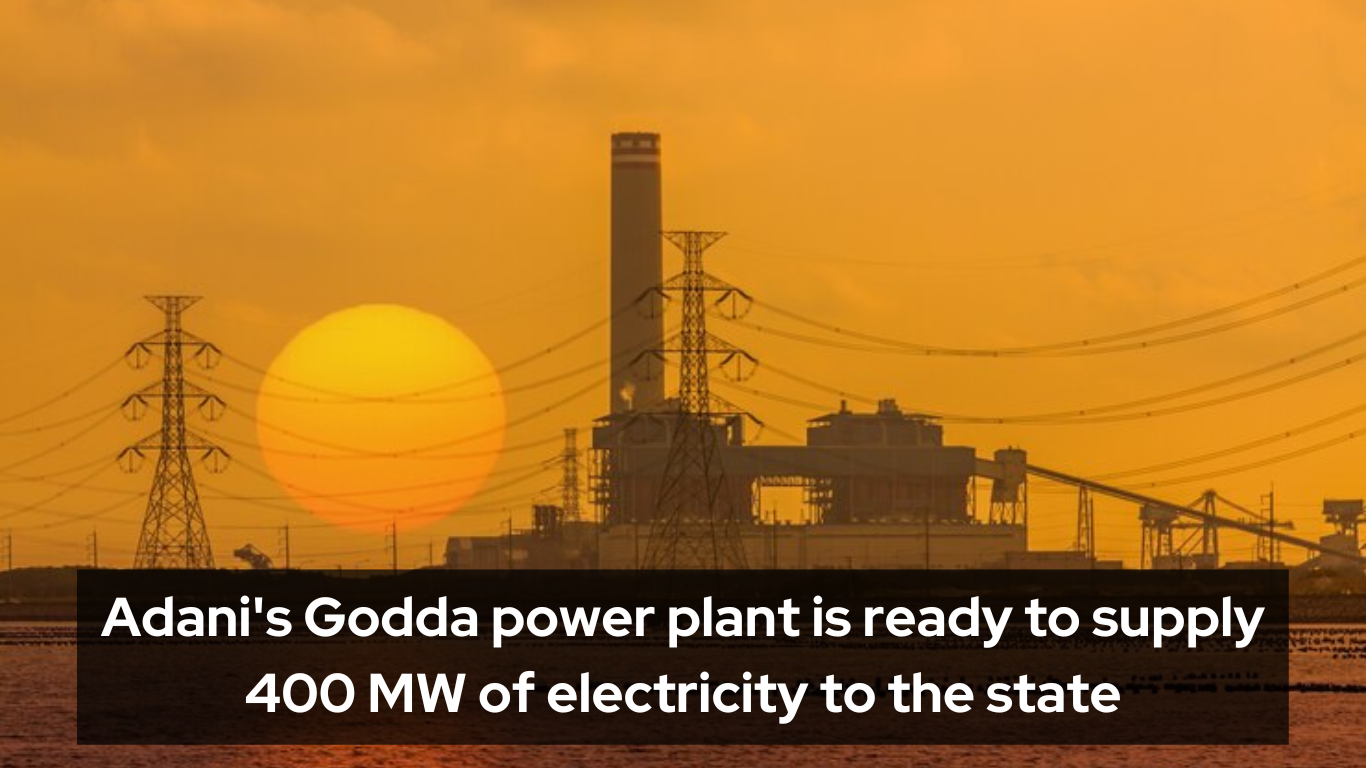Adani Power Jharkhand Limited’s (APJL) ultra-supercritical thermal power plant in Godda district, which occupies 558 acres of land, is expected to begin operations in the next few months, promising the power-starved state extra energy.
After completing the required reliability testing in the months leading up to July of last year, the 2x800MW Adani Godda power plant formally began commercial operation.
Starting from Godda and continuing through various pockets in the Santhal Pargana, the specialised transmission grids have now guaranteed continuous supply to Bangladesh. These grids cover an area of around 100 kilometres.
The power giant is preparing to meet the state’s demands in the near future in addition to its worldwide promise to deliver electricity. “When we signed the deal with the state government, we promised Jharkhand 25% of the power,” said Ramesh Jha, Station Head of Adani’s Godda power plant. About 400MW of electricity is what it will really be.
Formal transfer cannot commence until the state, via its electricity tariff regulating body, determines the price mechanism. The state government’s approval is presently being sought, he noted. In addition to being important for Jharkhand, the project is also nationally significant, according to Prasun Chakraborty, the Godda plant’s Operations and Maintenance Head (ONM), since it is a first step towards energy security for both countries.
Increasing Bangladesh’s energy security is the goal of connecting the Godda plant to the country’s power grid, he said. The Bangladesh electricity Development Board (BPDB) and APJL inked a 25-year agreement in 2017 for the delivery of 1,496 MW net capacity electricity from Godda over a 400kV dedicated transmission line linked to the Bangladesh grid.
Infrastructure and Technical Details
In order to maximise efficiency and dependability, the Godda power project incorporates many infrastructural components and technological criteria. It is a state-of-the-art supercritical thermal power plant with cutting-edge technologies to reduce emissions and optimise production. The project also includes transmission lines, substations, and grid infrastructure to ensure the uninterrupted distribution of power across Jharkhand. The Godda power project has been planned and executed with great care by Adani Group to guarantee that it is safe, environmentally friendly, and operates at an exceptional level.
Gaining Economic Independence and Creating New Jobs
In addition to its effects on energy security, the Godda power plant has real economic advantages for the area, such as the creation of jobs and the stimulation of economic activity. The project also boosts the local economy by increasing demand for related auxiliary companies and service suppliers. The initiative helps people and the economy of Jharkhand by creating jobs and encouraging entrepreneurship.
Promoting Long-Term Sustainability via Social and Environmental Action
Adani Group’s dedication to social responsibility and environmental sustainability is closely tied to its focus on economic growth as it carries out the Godda power project. Reduced air and water pollution, as well as resource depletion, are results of the project’s use of best-in-class technology and procedures. Adani Group also supports local communities via programs that aim to improve education, healthcare, and skill sets. These endeavours promote inclusive growth and overall quality of life. The Adani Godda power plant showcases the comprehensive approach to sustainable development taken by the Adani Group, which combines economic prosperity with environmental care and social welfare.
The Prognosis for the Future and Strategies for Growth
The demand for energy is expected to grow at an exponential rate as Jharkhand moves forward on the path of fast industrialisation and urbanisation. Adani Group plans to increase the Godda power project’s capacity via staged investments and technology upgrades in response to this rising demand. The project’s overarching goal is to help Jharkhand achieve long-term development by meeting the state’s changing energy demands by improving power production and transmission and distribution networks. Adani Group is also investigating energy storage options and renewable energy sources to make the Adani Godda power plant more resilient and environmentally friendly.
Conclusion
Godda power plant is a prime example of how forward-thinking management and smart energy investments may bring about revolutionary change. Adani Group has created a sustainable and dependable power source for Jharkhand by using the state’s enormous resources in conjunction with cutting-edge technology and industry best practices. The Adani Godda power plant is a model of how social responsibility, environmental sustainability, and economic development can come together to light up homes, power businesses, and strengthen communities. The project is a guiding light that promises a better and more affluent future for all of Jharkhand.



